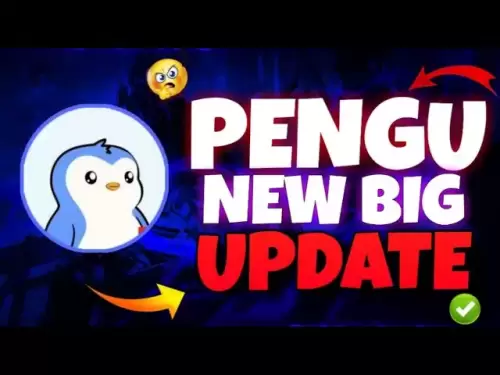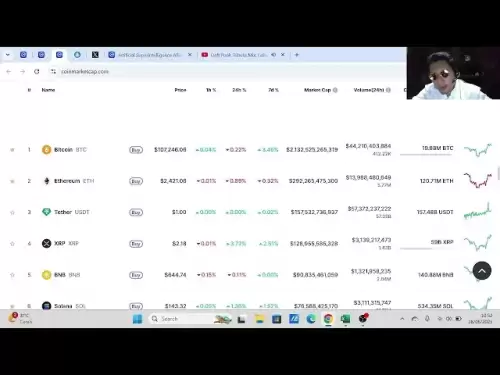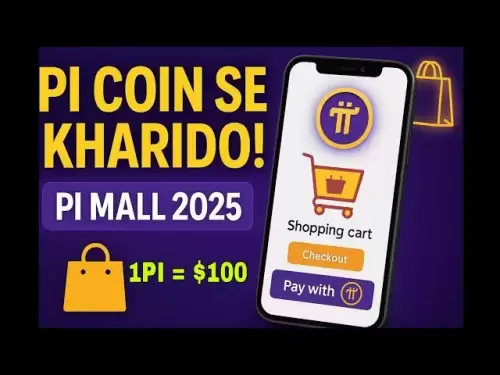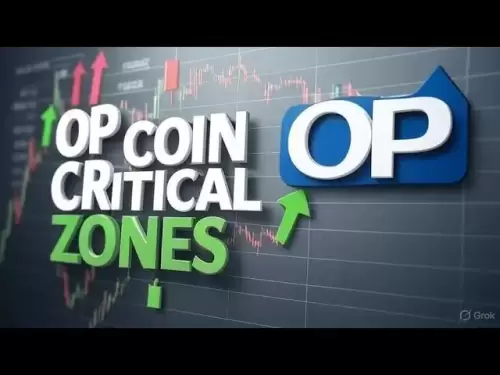-
 Bitcoin
Bitcoin $107,352.1067
0.28% -
 Ethereum
Ethereum $2,429.3531
-0.90% -
 Tether USDt
Tether USDt $1.0001
-0.02% -
 XRP
XRP $2.1894
4.62% -
 BNB
BNB $646.7968
0.36% -
 Solana
Solana $147.4290
4.03% -
 USDC
USDC $0.9998
-0.02% -
 TRON
TRON $0.2756
1.52% -
 Dogecoin
Dogecoin $0.1630
1.14% -
 Cardano
Cardano $0.5612
1.18% -
 Hyperliquid
Hyperliquid $37.0580
-0.05% -
 Bitcoin Cash
Bitcoin Cash $496.9410
-0.09% -
 Sui
Sui $2.7318
3.19% -
 Chainlink
Chainlink $13.1503
0.58% -
 UNUS SED LEO
UNUS SED LEO $9.0766
0.55% -
 Avalanche
Avalanche $17.7220
1.46% -
 Stellar
Stellar $0.2380
1.52% -
 Toncoin
Toncoin $2.8439
0.38% -
 Shiba Inu
Shiba Inu $0.0...01143
1.84% -
 Litecoin
Litecoin $85.8053
1.47% -
 Hedera
Hedera $0.1483
2.70% -
 Monero
Monero $314.3240
2.12% -
 Bitget Token
Bitget Token $4.6725
0.77% -
 Dai
Dai $1.0000
0.00% -
 Polkadot
Polkadot $3.3555
1.28% -
 Ethena USDe
Ethena USDe $1.0001
0.02% -
 Uniswap
Uniswap $7.0890
2.64% -
 Pi
Pi $0.5355
-3.40% -
 Pepe
Pepe $0.0...09393
1.06% -
 Aave
Aave $256.8136
-1.90%
Does SOL withdrawal require KYC certification? Is anonymous trading feasible?
SOL withdrawal may require KYC on centralized exchanges, but decentralized platforms like Raydium allow anonymous trading and withdrawal without identity verification.
May 13, 2025 at 06:49 am
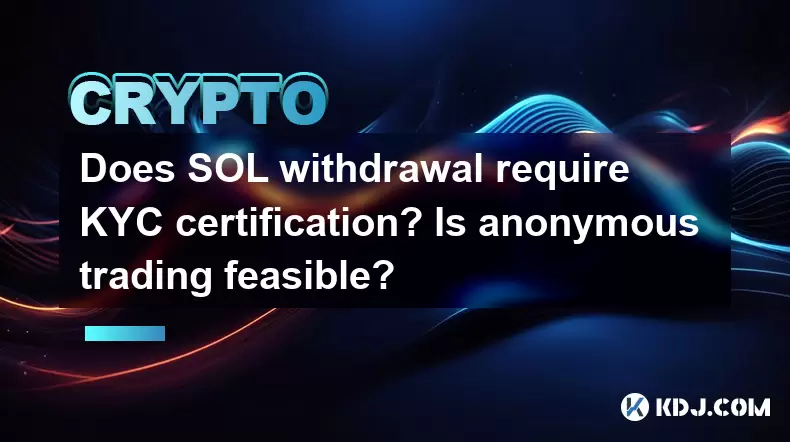
The question of whether SOL withdrawal requires KYC certification and whether anonymous trading is feasible within the Solana ecosystem is multifaceted and depends heavily on the platform used for trading and withdrawal. Let's delve into these aspects in detail.
Understanding KYC and Its Role in Cryptocurrency
KYC, or Know Your Customer, is a process that financial institutions and cryptocurrency exchanges use to verify the identity of their clients. The primary aim of KYC is to prevent money laundering, fraud, and other illegal activities. In the realm of cryptocurrencies, KYC requirements can vary significantly from one platform to another.
SOL Withdrawal and KYC Requirements
When it comes to withdrawing SOL, the Solana blockchain's native cryptocurrency, the necessity for KYC certification largely depends on the platform you are using. Here are some scenarios:
Centralized Exchanges (CEXs): Most centralized exchanges, such as Binance, Coinbase, and Kraken, require users to complete KYC verification before they can withdraw any cryptocurrency, including SOL. This is because these platforms are subject to regulatory oversight and must comply with anti-money laundering (AML) and counter-terrorism financing (CTF) regulations.
Decentralized Exchanges (DEXs): Decentralized exchanges, such as Raydium and Orca, which operate on the Solana blockchain, typically do not require KYC for trading and withdrawing SOL. Since DEXs are not centralized entities, they often bypass traditional KYC requirements, allowing for more privacy in transactions.
Crypto Wallets: Wallets like Phantom and Solflare, which are popular for managing SOL, do not require KYC for withdrawals. However, if you are transferring SOL from a centralized exchange to a wallet, you may need to go through KYC on the exchange before making the transfer.
Feasibility of Anonymous Trading with SOL
Anonymous trading with SOL is possible but comes with its own set of considerations:
Using DEXs: As mentioned, DEXs on the Solana network, such as Raydium, do not require KYC. This means you can trade SOL anonymously without revealing your identity. However, be aware that while your identity might be protected, all transactions on the blockchain are public and can be traced.
Using Privacy-Focused Wallets: Some wallets and services offer enhanced privacy features, such as coin mixing or tumblers, which can help obscure the trail of your SOL transactions. However, these services are not always available for SOL and may come with additional risks.
Regulatory Considerations: While you may be able to trade anonymously on certain platforms, it's important to understand that regulatory bodies are increasingly cracking down on anonymous cryptocurrency transactions. Engaging in such activities could potentially expose you to legal risks depending on your jurisdiction.
Steps to Withdraw SOL Without KYC (Using a DEX)
If you want to withdraw SOL without undergoing KYC, you can use a decentralized exchange. Here's how you can do it using Raydium as an example:
Connect Your Wallet: Open the Raydium website and connect your Solana-compatible wallet, such as Phantom or Solflare.
Acquire SOL: If you don't already have SOL, you can swap another cryptocurrency for SOL on Raydium. Since Raydium is a DEX, this can be done without KYC.
Withdraw SOL: Once you have SOL in your wallet, you can send it to any address you wish. To do this, go to your wallet, enter the recipient's address, specify the amount of SOL you want to send, and confirm the transaction. No KYC is required at any step of this process.
Risks and Considerations of Anonymous Trading
While anonymous trading can offer privacy, it comes with several risks:
Security Risks: Platforms that do not require KYC may be more vulnerable to hacks and scams. Always ensure you are using reputable services.
Regulatory Risks: As mentioned earlier, engaging in anonymous trading could attract regulatory scrutiny, especially in jurisdictions with strict financial regulations.
Transaction Traceability: Even though you might trade anonymously, all transactions on the Solana blockchain are publicly visible. This means that while your identity might be protected, the flow of funds can still be tracked.
Conclusion on KYC and Anonymous Trading with SOL
In summary, whether you need to go through KYC to withdraw SOL depends on the platform you are using. Centralized exchanges typically require KYC, while decentralized exchanges and wallets generally do not. Anonymous trading with SOL is feasible, particularly on DEXs, but it comes with its own set of risks and considerations.
Frequently Asked Questions
Q: Can I use a VPN to enhance my privacy when trading SOL anonymously?
A: Using a VPN can add an additional layer of privacy by masking your IP address. However, it does not affect the traceability of transactions on the blockchain. While a VPN can help protect your internet activity from being monitored, it won't make your SOL transactions anonymous on the blockchain itself.
Q: Are there any legal risks associated with trading SOL anonymously?
A: Yes, the legal risks of trading SOL anonymously can vary by jurisdiction. Some countries have strict regulations against anonymous cryptocurrency transactions, and engaging in such activities could lead to legal repercussions. It's crucial to understand the laws in your area before proceeding.
Q: Can I convert SOL to other cryptocurrencies without KYC?
A: Yes, you can convert SOL to other cryptocurrencies without KYC using decentralized exchanges like Raydium or Orca. These platforms allow you to swap SOL for other tokens without any identity verification, maintaining your anonymity.
Q: How can I protect my privacy when trading SOL on a DEX?
A: To protect your privacy when trading SOL on a DEX, consider using privacy-focused wallets, regularly changing your wallet addresses, and avoiding linking your real-world identity to your trading activities. Additionally, be cautious about the information you share online and use strong security practices to safeguard your accounts.
Disclaimer:info@kdj.com
The information provided is not trading advice. kdj.com does not assume any responsibility for any investments made based on the information provided in this article. Cryptocurrencies are highly volatile and it is highly recommended that you invest with caution after thorough research!
If you believe that the content used on this website infringes your copyright, please contact us immediately (info@kdj.com) and we will delete it promptly.
- Crypto's First Principles: Are Returns Still Rooted in Fairness?
- 2025-06-28 22:30:12
- Kaspa (KAS) Price Prediction 2025: Will It Hit $1?
- 2025-06-28 22:50:12
- A16Z Dumps $COMP on Coinbase: Liquidation or Rebalancing?
- 2025-06-28 22:30:12
- KraneShares, Coinbase, and Digital Assets: A New Era for Institutional Crypto?
- 2025-06-28 23:07:14
- Bitcoin Solaris: Mobile Mining Revolution & Beyond!
- 2025-06-28 22:35:13
- Bitcoin, Post-Dollar, and US Preparation: A New Digital Gold Standard?
- 2025-06-28 22:52:13
Related knowledge

How to customize USDT TRC20 mining fees? Flexible adjustment tutorial
Jun 13,2025 at 01:42am
Understanding USDT TRC20 Mining FeesMining fees on the TRON (TRC20) network are essential for processing transactions. Unlike Bitcoin or Ethereum, where miners directly validate transactions, TRON uses a delegated proof-of-stake (DPoS) mechanism. However, users still need to pay bandwidth and energy fees, which are collectively referred to as 'mining fe...

USDT TRC20 transaction is stuck? Solution summary
Jun 14,2025 at 11:15pm
Understanding USDT TRC20 TransactionsWhen users mention that a USDT TRC20 transaction is stuck, they typically refer to a situation where the transfer of Tether (USDT) on the TRON blockchain has not been confirmed for an extended period. This issue may arise due to various reasons such as network congestion, insufficient transaction fees, or wallet-rela...

How to cancel USDT TRC20 unconfirmed transactions? Operation guide
Jun 13,2025 at 11:01pm
Understanding USDT TRC20 Unconfirmed TransactionsWhen dealing with USDT TRC20 transactions, it’s crucial to understand what an unconfirmed transaction means. An unconfirmed transaction is one that has been broadcasted to the blockchain network but hasn’t yet been included in a block. This typically occurs due to low transaction fees or network congestio...

How to check USDT TRC20 balance? Introduction to multiple query methods
Jun 21,2025 at 02:42am
Understanding USDT TRC20 and Its ImportanceUSDT (Tether) is one of the most widely used stablecoins in the cryptocurrency market. It exists on multiple blockchain networks, including TRC20, which operates on the Tron (TRX) network. Checking your USDT TRC20 balance accurately is crucial for users who hold or transact with this asset. Whether you're sendi...

What to do if USDT TRC20 transfers are congested? Speed up trading skills
Jun 13,2025 at 09:56am
Understanding USDT TRC20 Transfer CongestionWhen transferring USDT TRC20, users may occasionally experience delays or congestion. This typically occurs due to network overload on the TRON blockchain, which hosts the TRC20 version of Tether. Unlike the ERC20 variant (which runs on Ethereum), TRC20 transactions are generally faster and cheaper, but during...

The relationship between USDT TRC20 and TRON chain: technical background analysis
Jun 12,2025 at 01:28pm
What is USDT TRC20?USDT TRC20 refers to the Tether (USDT) token issued on the TRON blockchain using the TRC-20 standard. Unlike the more commonly known ERC-20 version of USDT (which runs on Ethereum), the TRC-20 variant leverages the TRON network's infrastructure for faster and cheaper transactions. The emergence of this version came as part of Tether’s...

How to customize USDT TRC20 mining fees? Flexible adjustment tutorial
Jun 13,2025 at 01:42am
Understanding USDT TRC20 Mining FeesMining fees on the TRON (TRC20) network are essential for processing transactions. Unlike Bitcoin or Ethereum, where miners directly validate transactions, TRON uses a delegated proof-of-stake (DPoS) mechanism. However, users still need to pay bandwidth and energy fees, which are collectively referred to as 'mining fe...

USDT TRC20 transaction is stuck? Solution summary
Jun 14,2025 at 11:15pm
Understanding USDT TRC20 TransactionsWhen users mention that a USDT TRC20 transaction is stuck, they typically refer to a situation where the transfer of Tether (USDT) on the TRON blockchain has not been confirmed for an extended period. This issue may arise due to various reasons such as network congestion, insufficient transaction fees, or wallet-rela...

How to cancel USDT TRC20 unconfirmed transactions? Operation guide
Jun 13,2025 at 11:01pm
Understanding USDT TRC20 Unconfirmed TransactionsWhen dealing with USDT TRC20 transactions, it’s crucial to understand what an unconfirmed transaction means. An unconfirmed transaction is one that has been broadcasted to the blockchain network but hasn’t yet been included in a block. This typically occurs due to low transaction fees or network congestio...

How to check USDT TRC20 balance? Introduction to multiple query methods
Jun 21,2025 at 02:42am
Understanding USDT TRC20 and Its ImportanceUSDT (Tether) is one of the most widely used stablecoins in the cryptocurrency market. It exists on multiple blockchain networks, including TRC20, which operates on the Tron (TRX) network. Checking your USDT TRC20 balance accurately is crucial for users who hold or transact with this asset. Whether you're sendi...

What to do if USDT TRC20 transfers are congested? Speed up trading skills
Jun 13,2025 at 09:56am
Understanding USDT TRC20 Transfer CongestionWhen transferring USDT TRC20, users may occasionally experience delays or congestion. This typically occurs due to network overload on the TRON blockchain, which hosts the TRC20 version of Tether. Unlike the ERC20 variant (which runs on Ethereum), TRC20 transactions are generally faster and cheaper, but during...

The relationship between USDT TRC20 and TRON chain: technical background analysis
Jun 12,2025 at 01:28pm
What is USDT TRC20?USDT TRC20 refers to the Tether (USDT) token issued on the TRON blockchain using the TRC-20 standard. Unlike the more commonly known ERC-20 version of USDT (which runs on Ethereum), the TRC-20 variant leverages the TRON network's infrastructure for faster and cheaper transactions. The emergence of this version came as part of Tether’s...
See all articles






















